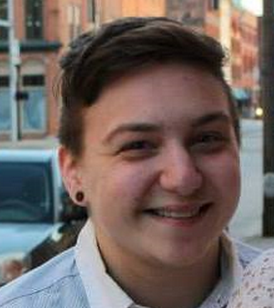By Luke Grabski
 I read an article recently called “An American Tragedy” by Nuanihal Singh from August 2012, shortly after a white supremacist opened fire in the Sikh Temple in Oak Creek, Wisconsin. The article raises awareness about the lack of awareness about the horrible events that took place.
I read an article recently called “An American Tragedy” by Nuanihal Singh from August 2012, shortly after a white supremacist opened fire in the Sikh Temple in Oak Creek, Wisconsin. The article raises awareness about the lack of awareness about the horrible events that took place.
While reading how Singh was concerned that the national media treated “the massacre in Oak Creek … as a tragedy for Sikhs in America rather than a tragedy for all Americans,” I reflected on my recent experience at the Not In Our Town National Leadership Gathering.
Almost two years after the massacre in Oak Creek, I sat in a large room in the Northern Hotel in Billings, Montana as family members and survivors of the shooting sat on a panel about the actions they’ve taken to prevent these situations in the future.
People from around the nation listened intently to their story. We all watched a film, which has been shown around the country, about how the Oak Creek community came together. The film, capturing “Chardi Kala” or “relentless optimism,” is thoroughly inspiring and whole-heartedly genuine.
Two years after Singh wrote that “Oak Creek [had] largely receded from public consciousness,” I, a college student from Bowling Green, Ohio who’s never even been to Wisconsin, can attest to the fact that the story of Oak Creek – and many other stories from across the nation – are being brought to the consciousness of more and more people, inspiring change in countless communities.
That’s what Not In Our Town is about: community members, not national news stations. It’s about the people out there making change.
At the National Gathering, I had the opportunity to learn about so many different people and the stories in their communities. I heard personal stories of harm inflicted based on faith, sexism, racism, immigration status, ability, class, homophobia, transphobia. I interacted with students and educators, police and community members, people graduating and people retiring – and the point of Not In Our Town is not to mute or collapse these differences.
I’m not here to reflect on the idea that we are all human, and frankly, I’m not a fan of that argument.
As Audre Lorde put it, “It is not our differences that divide us. It is our inability to recognize, accept and celebrate those differences.” Recognition, acceptance and celebration is what I saw happening at the National Gathering and throughout the nation through grassroots organizing.
People are standing together to stop hate and intolerance, which I know are both very vague terms, but their ambiguity allow them to be shaped and molded to all the people who are ostracized, vandalized, brutalized and, too often, killed for who they are.
Ambiguity isn’t always bad. Not In Our Town can come in many forms. It can be in the form of organized eat-ins to support restaurants that have been vandalized, like in Billings, Montana.
It can be shielding hate by standing on a curb with umbrellas to cover up the Westboro Baptist Church in a counter-protest, like in Bloomington, Illinois.
It could be working in schools, working with the town’s police force, educating people through programming and events. These actions are being taken all throughout the country and throughout the world.
Singh was right about there being “tragedy inherent in the brutal murders, the heroic sacrifices, the anguished waiting, and the grief of relatives whose lives will never be the same” in Oak Creek. Singh was right that the people who should have acknowledged the event didn’t.
But I don’t think that the story went untold, not to the people who would be inspired by the change that those in the Oak Creek community brought to make a negative into something positive, something that helps and inspires people.
If I learned anything from the NIOT National Leadership Gathering and the people there, it’s that I can personally make a difference. I don’t need to be interviewed by a news station, I don’t need to have any specific position or ranking or title to give me some sort of validated authority – and neither does anyone else. We can all make a change, and we can all make differences in our communities and in our towns.